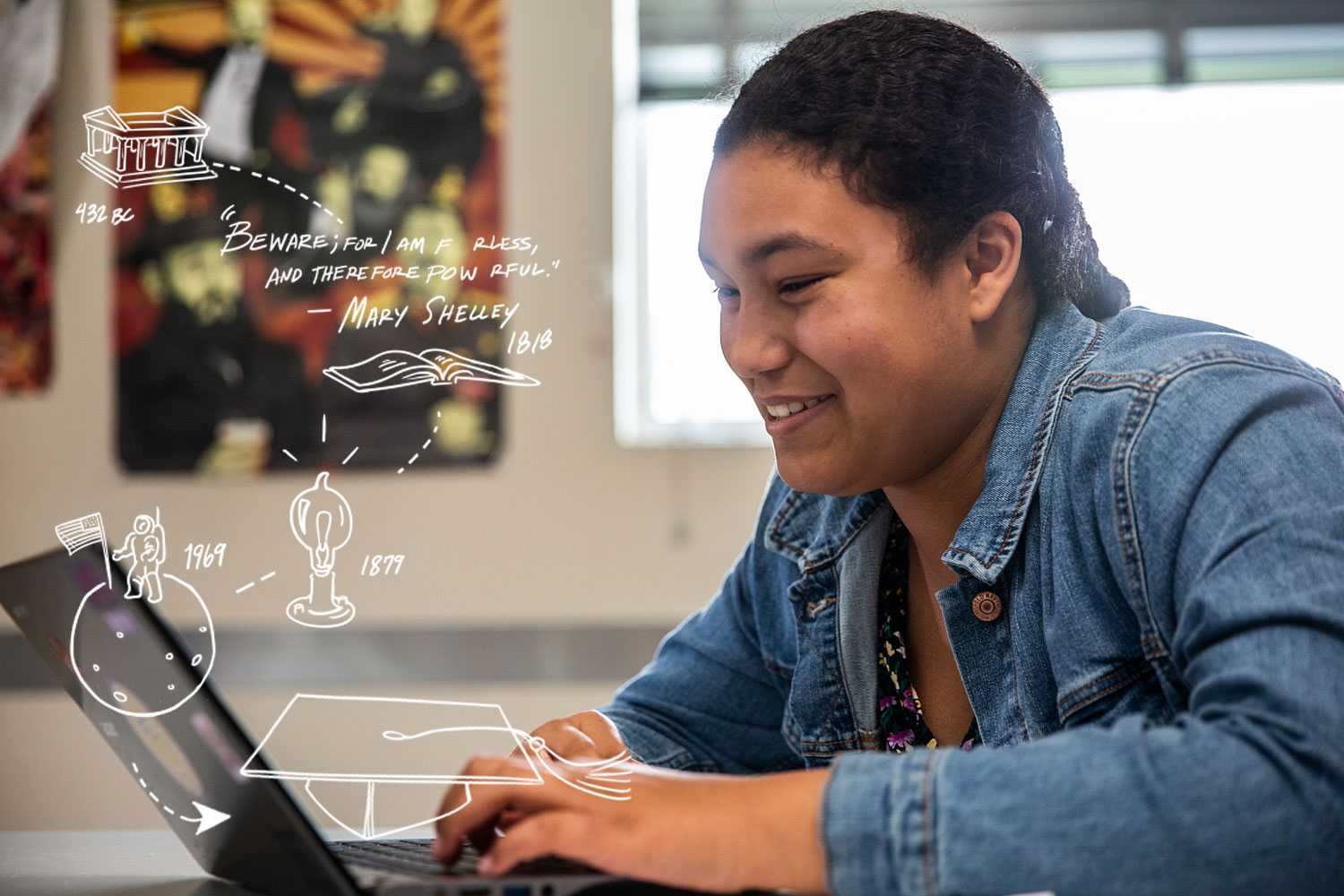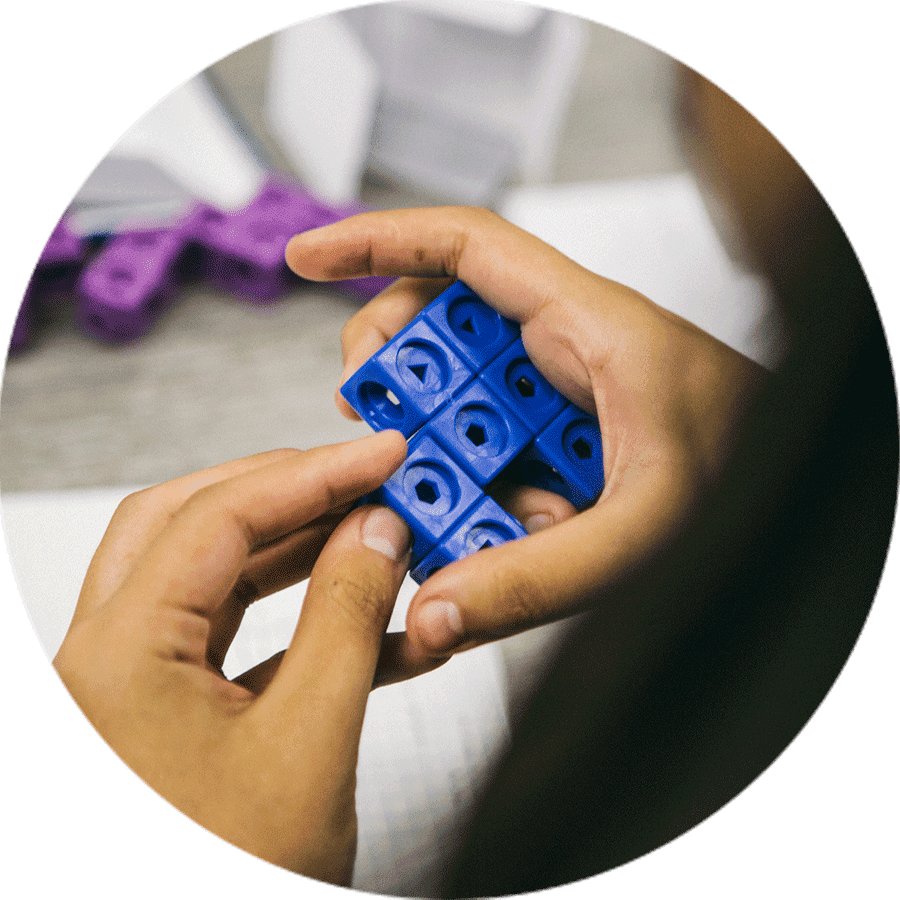3. A positive culture of assessment benefits students, educators, and families.

A positive assessment culture opens up new possibilities to improve learning and empower students.
Fact:
Three in four students say that classroom assessments—from tests and quizzes to performance tasks—benefit their learning.
Source: National survey by Gallup for NWEA
When people hear “test” they often think of standardized tests given at the end of the school year or college admissions exams like the SAT or ACT. But those are just a few ways to measure learning and use the results to make decisions.
In high schools where assessments are used thoughtfully, educators and students themselves use a wide variety of strategies and instruments to assess student progress. They recognize that many forms of high-quality assessment—from end-of-course grades to classroom projects—can be useful if used in the right ways for the right purposes. Teachers employ a range of strategies to deepen as well as document learning; they engage students as partners in assessment to build ownership and lifelong learning skills.
Students themselves see value in assessment. In a national survey by Gallup, three in four secondary students said that tests, quizzes, and other kinds of classroom assessment benefit learning. As decades of research have shown, frequent low-stakes quizzes, tests, and other assessments can reinforce a student’s factual and conceptual learning, a phenomenon that scientists call “the testing effect.”
A positive schoolwide culture can turn assessment from a “necessary evil” into a powerful component of teaching and learning. Imagine a high school where assessments work like this:
- Students share work in progress, take risks, and give and receive constructive advice.
- Students and teachers alike get useful, actionable feedback throughout the school year.
- Based on assessment results, students plan learning, make adjustments, and prepare for college and careers.
- Families use assessment results to understand and support student progress.
- School leaders and teachers use test data and other assessment results to ensure equitable learning for all groups of students.
Sheri Nelson, vice principal at Elizabethton HIgh School in Tennessee, relishes her role as the school’s testing coordinator, and the opportunity it gives her to help create a positive culture across the school. The job, she says, is about much more than ensuring the smooth administration of standardized tests; it’s about positioning assessment as “a learning tool to predict and prepare students to be college and career ready.”
Dive Deep
![student smiling]() Culture Matters
Culture MattersIn a guest post for XQ, Elizabethtown High’s vice principal Sherri Nelson explains why it’s important for schools to develop a positive and beneficial testing culture.
Read![a student smiling]() Research Roundup
Research RoundupFind out what the latest research says about testing, including the big benefits of frequent low-stakes quizzes for students.
Read![student building with small blue blocks]() Lessons from Linked Learning
Lessons from Linked LearningThe Stanford Center for Opportunity Policy in Education shares advice on creating a system of performance assessments, based on its work with Linked Learning.
Explore![black and white collages]() Assessment for Learning
Assessment for LearningExplore how a national project is helping educators around the country rethink assessment, then delve into its extensive library of tools, strategies, and stories.
Explore
Analyze
Students develop positive attitudes about assessment when they see the benefits for their own learning. Adults can learn a lot about assessment by listening to students.
Step 1 – Research
Ask 5-10 students to identify an assessment, inside or outside school, that was especially meaningful or useful to them. Maybe it was advice from a coach, feedback on an art project from a teacher or peer, or results from a math test—something that helped them understand their own strengths and areas for growth. Ask them to talk about what they learned and how they used that knowledge.
Step 2 – Reflect
Discuss your findings and reflect together on what the students said.
- What did their answers have in common? How did they differ?
- What did you learn? What surprised you?
- What insights did you gain about how to establish a positive culture of assessment?




